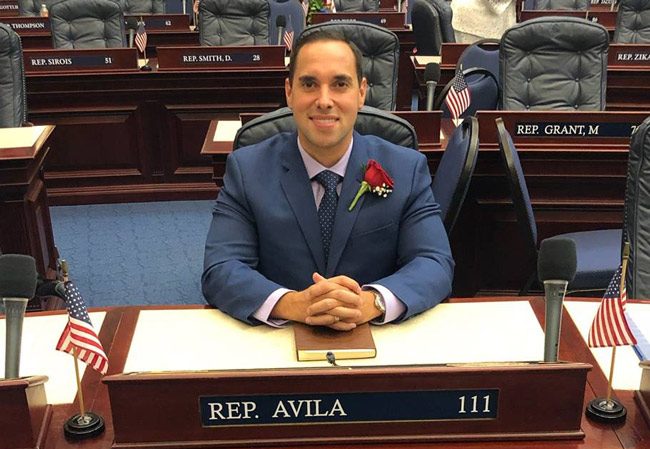
State charges on cigarettes and rental cars, along with several local government fees, would officially be named as “taxes,” under a measure that raised concerns from cities as it advanced out of a House committee Wednesday.
House Ways & Means Chairman Bryan Avila, a Miami Springs Republican who sponsored the proposal, said the intention of the bill is “transparency.”
“This renaming is a reflection of the fact that these levies are often government exactions of money to pay for governmental goods or services that are either unrelated to or only distantly related to the activity, person or entity being charged,” Avila said. “Alternatively, there may be some benefit to the payer, but there is no ability to avoid the levy.”
The committee approved the measure (PCB WMC 19-01) with a 14-4 vote, with Democratic Reps. David Silvers of Lake Clarke Shores and Al Jacquet of Lantana joining the Republican majority on the panel.
The proposal seeks to rename as taxes any state fees or surcharges on cigarettes and tobacco; business filings; rental cars; waste tires and lead-acid batteries; initial motor vehicle registrations and certain motor vehicle registration surcharges; hospital and health-care entity assessments; select auto titles and liens; and select driver’s license fees. The new labels would go into effect on Jan. 1.
On the local government level, the proposal would identify as a tax any new or increased special assessment or non-ad valorem assessment, impact fee or mobility fee, and franchise fee.
Amber Hughes, Florida League of Cities senior legislative advocate, said there are numerous questions about the potential impact of the proposal. The name switch could also affect requirements for public notice, public meetings and paperwork related to taxes, which are different than requirements for existing fees and surcharges.
“At a minimum there would be a large amount of education that needs to be done,” Hughes said. “If the (bond) rating agencies and underwriters are used to seeing impact fees and now they’re seeing a different word, just making sure there is continuity and not an impact to the credit and the ability for local governments to access capital.”
But Spring Hill Republican Rep. Blaise Ingoglia was among the lawmakers who dismissed the bond financing concerns.
“The bonding agencies, the rating agencies are eventually going to catch up to this,” he said.
Local governments view fees as confirming a special benefit to a person while taxes are considered a more general-purpose source of revenue.
Speaking against the proposal, Rep. Anna Eskamani, D-Orlando, questioned whether the “wide-ranging” proposal could impact past case law in which fees have been challenged.
But Rep. Byron Donalds, R-Naples, defended the name change, saying, “it’s better to call it what it is.”
According to a House staff analysis, the proposal is expected to cause some non-recurring expenses to state government agencies, but the amount is unknown.
The measure currently doesn’t have a Senate companion. But after the meeting, Avila said he plans to meet with Sen. George Gainer, R-Panama City, on the proposal.
–Jim Turner, News Service of Florida





























Sherry says
ABSOLUTELY! They should “ALL” be called “TAXES” because that is precisely what they are! The political “hocus pocus” of supposedly “cutting taxes” on one hand and then raising “fees” with the other is complete manipulation of our citizens by a corrupt political system at every level!
Charon says
A fee is usually directly tied to the cost of maintaining a service. I guess the legislature wants to let people know we are not in fact a “low tax” state once you account for taxes in fees clothing. Every year the cost of running government goes up, just like every other expense. If your “taxes” aren’t increasing, it’s probably because your fees are. Or services are being cut that you may not be aware of. So when politicians say they won’t raise your taxes you’re either being lied to or they are taking something away and hoping you don’t catch on.
Q-Tip says
It should be called Theft…
Local says
Everyone already knows these are taxes. Whats the big deal.
Bill says
So just who would be against calling them what they ARE???